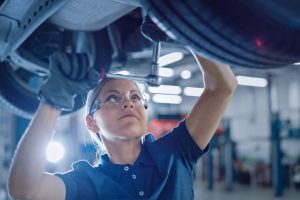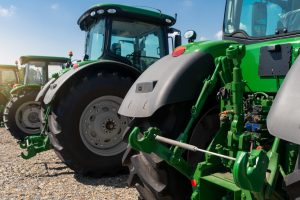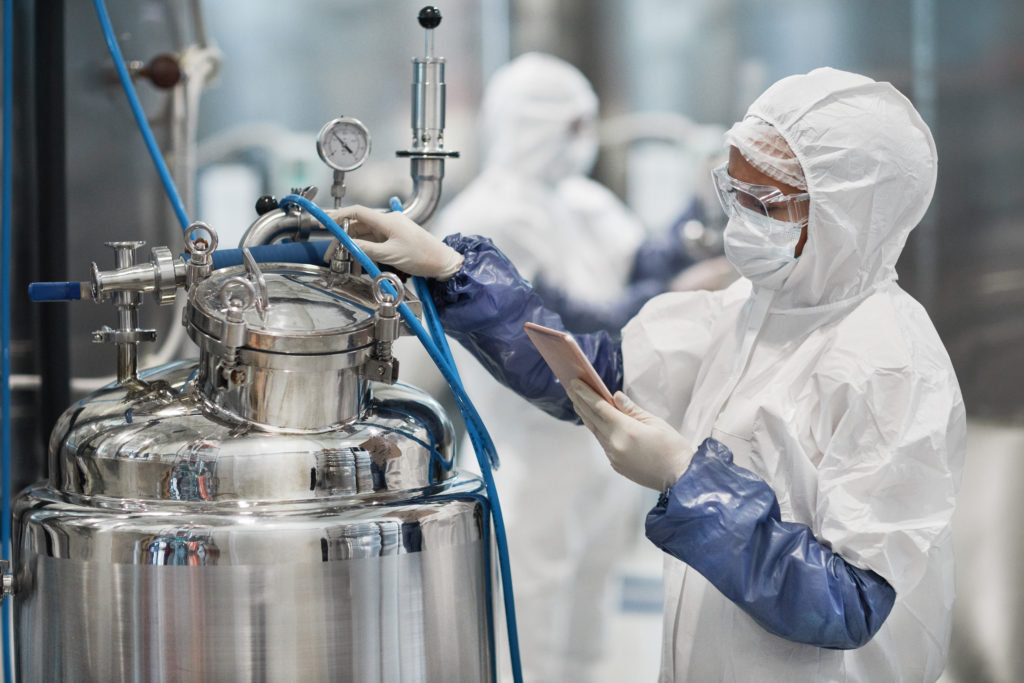Sectors & Target Groups
Sectors
Metalworking is among the key areas in which Valuplex appraises machinery. This segment is used in many industries such as tool and mould construction, automaking and mechanical engineering. Distinctions are made between many procedures in this context. Drilling, turning, milling, grinding, sawing, thread cutting and engraving, for example, belong to the field of ‘machining’, whereas bending, casting, hammering, embossing, forging, stamping and rolling and others are ‘non-machining processes’.
The market for used machinery is very large and confusing. Compared to other sectors, there is also an extremely low degree of price transparency with regard to the feasible values for machinery and useful information is barely accessible for occasional market participants. So accurate appraisals can only be built on strong expertise and a good dataset. We believe that only a specialised provider like Valuplex can guarantee these services. Our appraisers draw on data provided on the www.surplex.com platform and learn almost daily whether their assessments were correct based on the real-world auction prices. Combined with digital resources, this concentrated experience at Valuplex enables us to assess values that are significantly more realistic, marketable and usually higher in no time at all. All machinery is always inspected and assessed by at least 2 appraisers. This guarantees additional experience and certainty.
The segments of supplier parts, supplier products and final production of automobiles is a highly advanced industry with numerous market players in Germany and many other countries in Europe. Here, Valuplex appraises machinery and technical systems from all areas, so from system/module suppliers (Tier 1), component suppliers (Tier 2) and part suppliers (Tier 3).
For some time now, this market has been gripped by considerable changes caused by a variety of factors. This leads, among other things, to strong fluctuation in the market values for certain machine categories. So, to obtain a reliable appraisal, you will a partner who accounts for the market trends in particular sectors and factors their influence into the appraisal. Moreover, the appraiser must have profound technical understanding of the machinery and, if applicable, production lines they are valuing. This is the only way to estimate whether and how they can still be used in other manners or industries. If so, this might enable even higher residual values than had initially appeared feasible.
All machinery is always inspected and assessed by at least 2 appraisers. This guarantees additional experience and certainty.
Whether it’s for kitchen manufacturers or sawmills, we appraise machines for panel processing, planning and carpentry machines, as well as equipment for coating and finishing, drilling and dowelling machines, veneer presses, extraction systems and many more assets that are needed for processing wood.
The industry has also developed a plethora of solutions to transport the products – especially for chipboard – among them turning stations, stacking and palletising systems, roller conveyors and running belts.
Besides that, there is a wealth of other peripheral machines, e.g. specialised packaging systems, solutions for handling wood products and much more. In short, the world of wood processing machinery is huge!
Some of the machines in this sector retain their value very well and are found in almost every wood processing business. But there are also highly specialised production lines or individual machining centres for which the market value is determined by the equipment and its area of use. The prices of new equipment in this field can quickly reach 6 or even 7-digit ranges. So it follows that the experience of the appraisers plays an essential role in the valuation process. After all, ‘non-experts’ will have difficulty learning much about the final market value from the machine specifications and vintages alone.
All machinery is always inspected and assessed by at least 2 appraisers. This guarantees additional experience and certainty.
Plastics processing is needed in many branches of industry. For instance, injection moulding machines are used to make many types of plastic packaging in the food industry.
Primary moulding processes in plastics processing include injection moulding, foaming and blow moulding. Forming processes such as welding and bonding belong to another important category. Mechanical processing on lathes and milling machines is also common. Plastics processing machines are highly diverse and are structured in many different ways. For example, a thermoplastic preform is inflated warm in a mould in the production of bottles. It retains its form as it cools down.
Any general statement about the design of plastics processing machines is difficult due to the wide variety of materials. Conventional tool machinery can be used for machining processes. The processing tools have a different angle in plastics processing than would be the case in metalworking. Plastic parts are manufactured individually or as bulk products based on drawings or datasets for automatic machines. It is important to maintain a low temperature of the cutting edge during machining. Special air-cooled electrospindles are used to machine plastics. The tool holders are also designed specifically for processing plastics.
The prices of older and smaller classic plastic injection moulding machines in particular are dropping on the secondary market due to developments in the field of 3D printing (additive manufacturing). Here is it advisable to observe price trends based on actual sales in order to provide clients with marketable values. This dataset is available and can be used for appraisals thanks to the large number of plastics machinery marketed on www.surplex.com. In addition, all machinery is always inspected and assessed by at least 2 appraisers at Valuplex. This guarantees additional experience and certainty.
The food sector is an essential branch of industry. A broad range of machinery is needed in order to meet the high demand for high-quality food.
Special machines for processing the food must be appraised, along with machinery to package the products. Fully or semi-automatic solutions are frequently used. Solutions for the transport and handling of food compliment the production machinery. A variety of machines are incorporated within freely programmable packaging lines. Commonly used systems include CNC-controlled robots with articulated arm, fully automatic pallet wrappers, automatic carton erectors, hot-melt gluing systems, scissor lift tables and infeed and outfeed roller conveyors.
This sector depends on machinery to meet the high demand for food. The machinery is used firstly to process the ingredients and secondly to package the food. Most of the machinery in the food industry is fully or semi-automatic.
So the issues of the machinery’s intended design and whether it can be repurposed are always pertinent issues when appraising these systems. Many machines are built specifically to accommodate the needs of particular customers. They are therefore difficult to sell on the secondary market, compared e.g. to more standard machines. This is why Valuplex always dispatches 2 appraisers to evaluate the machines and estimate their market value for you.
The construction industry is among Germany’s most important economic sectors. But efficient work is only possible with professional construction machinery. These machines are used to process and transport various building materials and to help in the erection of structures.
In places, the construction industry sometimes uses very special machines, equipment and vehicles that are only deployed in road, tunnel, canal or pipeline construction. Examples include drilling and diaphragm wall equipment as well as rollers and compaction machines. Other forms of construction machinery are of interest in all areas of the building sector and beyond, e.g. diggers, wheel loaders and mini-excavators, cement mixers, forklifts, cranes and more.
Although the market values for construction machinery seem highly transparent due to the wealth of online platforms operating in this area, it is nevertheless indispensable to possess suitable knowledge of actual sales prices when performing a valuation. The publicly quoted asking prices among market players often bear scant resemblance to the money that eventually changes hands. Many offers remain online for a long time precisely because of the exaggerated asking price.
At Valuplex, our valuations are based on real proceeds achieved on www.surplex.com . We always dispatch 2 appraisers as well, so that the assessment you receive reflects the market and is ultimately feasible.
In order to feed a growing world population, traditional farming has evolved into an agricultural industry (agribusiness), which encompasses all areas of crop farming and animal husbandry. Characteristic features of agribusiness are rising productivity and mass production. The agricultural machinery, vehicles and equipment used in agribusiness are therefore suitably specialised and powerful. Tractors, milking systems, forage harvesters, mowing machines, beet harvesters – the list could be extended indefinitely.
There is hardly any other branch of industry that symbolises the technical advancements of the last hundred years like the agribusiness sector. A horse, cart and hand-guided plough were normal farming equipment just a few decades ago. Today, high-performance tractors with efficient appliances deal with the arduous work in the fields.
There is a large market for used agricultural machinery. But the wide range of attachments and special machines make it occasionally rather complex, especially in regard to valuation. People need to know and correctly assess how the machinery works and where it is used in order to obtain a fair market value. At Valuplex, we possess extensive know-how in this specialised field and are able to bring in external specialists when necessary. The actual auction proceeds obtained on the www.surplex.com platform also help us to identify the correct market and fair values.
Products from the chemical and pharmaceutical industries are ubiquitous in modern society: organic and inorganic basic materials, plastics, fertilisers, household chemicals, but also life-saving medicines from pharmaceutical manufacturers. Substances need to be endlessly separated, mixed, melted, centrifuged, evaporated, synthesised and dried.
Precise mixing and processing of starting materials is what really counts in the chemical and pharmaceutical industry. No matter whether the end product is solid, liquid or gaseous – hygiene and precision are the top priorities at all stages of the production process. The machinery and systems used in the manufacture of chemical and pharmaceutical products are hence of the highest quality. All of the machines belong in the field of special technologies: Autoclaves, melting machines, mixers, tablet presses, freeze dryers, granulators, detectors, laboratory equipment, dryers, evaporators and centrifuges account for a mere fraction of the machinery used in these industries.
Here at Valuplex, we would be very arrogant to claim that we are experts in all these areas. But we are excellent at bringing together all the relevant information about the machinery and providing an accurate description. At times we will call on external specialists and other industry players to prepare our appraisal.
Additive manufacturing is another name for 3D printing. The term is used for all manufacturing methods in which material is applied in a succession of layers to create three-dimensional objects. This method is popular in modelling, prototyping and tool making. The proportion of components made by 3D printing in series production is increasing as the manufacturing costs continue to fall, leading to growing demand for machinery and technical equipment in the secondary market for 3D printing. Among the significant cost benefits is that it dispenses with the need to create expensive moulds or to switch moulds during production. There are printing processes for metalworking, including electron beam melting and selective laser melting (SLM). The starting materials are aluminium, tool steel, stainless steel, titanium, nickel-based alloy and bronze.
The printing processes used in plastics processing are called electron beam melting, selective laser sintering (SLS), fused deposition modelling (FDM), polygraphy/polyjet methods and stereolithography (SLA). They use plastics such as polyamide, silicone rubber, castable wax cast and others.
At Valuplex, we have already appraised a number of machines for additive manufacturing and accompanied their sale on www.surplex.com As a rule, a cautious approach to the market values is advisable due to the rapid pace at which 3D printing and its control software are evolving. Only machinery that has been regularly and well maintained can now be marketed successfully. It is also imperative to ensure that the machinery is decommissioned properly, as even disconnecting the printer from the power source can cause damage and expensive repairs if it is not done in a professional manner.
In addition, all machinery is always inspected and assessed by at least 2 appraisers. This guarantees additional experience and certainty.
There are no signs of a paperless world actually emerging. Although the print media and publishing industry have come under pressure, global paper consumption has nonetheless reached an all-time high of 440 million tonnes (2015). But paper needs to be produced and cut to size by suitable machinery before it can be printed or used for writing and packaging, hygiene articles or for technical purposes. Only then is it used on machines for offset, laser and screen printing.
Within paper processing, machines are used for sawing, cutting, winding, printing, coating, embossing, folding, gluing and laminating. Each of these areas encompasses a separate, wide range of individual and detailed solutions, along with series production and standard machinery. There is a really broad selection of used machinery. This is partly due to the highly innovative nature of the paper industry.
At Valuplex, we are in close contact with manufacturers and market players, especially in the assessment of large machinery in this sector. This is necessary, as market changes within the industry strongly influence the value of machines and must therefore be correctly assessed. It is difficult to determine correct values without cooperating with specialised partners. What is more, we always use 2 appraisers to value the machinery at Valuplex.
Many SME are somewhat cautious in the use of robots, although the major players in mechanical engineering, the automotive sector and the beverages industry are continuously automating their production lines. It is worth noting that smaller businesses would certainly benefit from automated production processes. Those who invest in robotics, switching to automatic handling systems, robotic cells, sorting systems etc., are rewarded with higher labour productivity and lower reject rates.Robot technology is used to automate production throughout the industrial sector. Entire manufacturing lines can be built that automatically manage every step, right through to the finished product. The automotive industry is a prime example in this area. Welding robots are used for the bodywork and painting robots to apply the colouring. The manufacture of computers would also be inconceivable without robots. Robot systems are now produced with modular designs and have therefore become more versatile.
Among our fields of expertise here at Valuplex is the automotive sector, so we regularly and frequently appraise a broad variety of robot technology. Much of it is then marketed and auctioned on www.surplex.com This gives us a clear picture of the actual market values, which improves the accuracy of our appraisals.





Target Groups
Would you like to transfer machinery and technical systems to other parts of the company and make sure that everything is sorted from a tax perspective? Or perhaps you need an appraisal to answer questions of corporate law and appraise particular parts of your organisation for this purpose? This may be the only way to uncover hidden reserves, especially in companies with particularly large production divisions. An external perspective of marketable fixed asset values can also be helpful for downstream decisions when faced with possible plant closures or production shutdowns./p>
So there are many reasons why an external appraisal of machinery and technical installations can make sense. Simply contact us with no further commitment. We will first advise you free of charge and determine together which valuation might be appropriate.
Common appraisal methods refer to the company’s standard performance indicators. But balance sheet values are not ideal for determining the true market value of machinery. In this case, an appraisal with real market values and a detailed assessment by our experts can be helpful for a professional estimate and downstream decisions.
In addition, Valuplex can also prepare real purchase or marketing quotations for machinery and technical equipment in cooperation with Surplex GmbH. Guarantees for the assessed values can also be provided for marketing assignments and deliver certain returns in turbulent secondary markets.
A realistic appraisal of the value of machinery can be an essential building block in the search for an investor during succession arrangements. This applies not only with a view to the search possibly failing, but also to use the actual machinery values to acquire a better assessment of potential takeover offers and to put them in the right perspective.
The costs of these appraisals for movable assets are often lower than you might assume. Simply contact us for a free initial consultation with no further commitment.
Banks may draw on expert appraisals when deciding on new credit facilities or reviewing current collateral rights. Leasing companies also trust in the profound analyses and market assessments. Not only to obtain appraisals, but also to market the fixed assets.
Moreover, we prepare well-founded value development analyses for new machinery on behalf of clients throughout Europe and support various sale & lease back companies in determining the value of used machines and technical equipment. And we usually do so based on fixed rates and completed within 48 hours.
Contact us any time for a free initial consultation with no further commitment. When you need to know the value of machinery, our processes and services will doubtless deliver a bespoke, persuasive solution that simplifies your working routines.



CONTACT
Our Business hours
Mo-Fr 8:00 – 17:00 Uhr
Address:
Valuplex
Alexander Peitz
Theodorstraße 105
40472 Duesseldorf
Tel: +49 211 5455 8990
Mobil: +49 162 436 03 17
Mail: info@valuplex.com


DQS-certified according to ISO 9001:2015 for the limited scope "preparation of expert opinions as well as purchase and marketing of insolvency assets".




